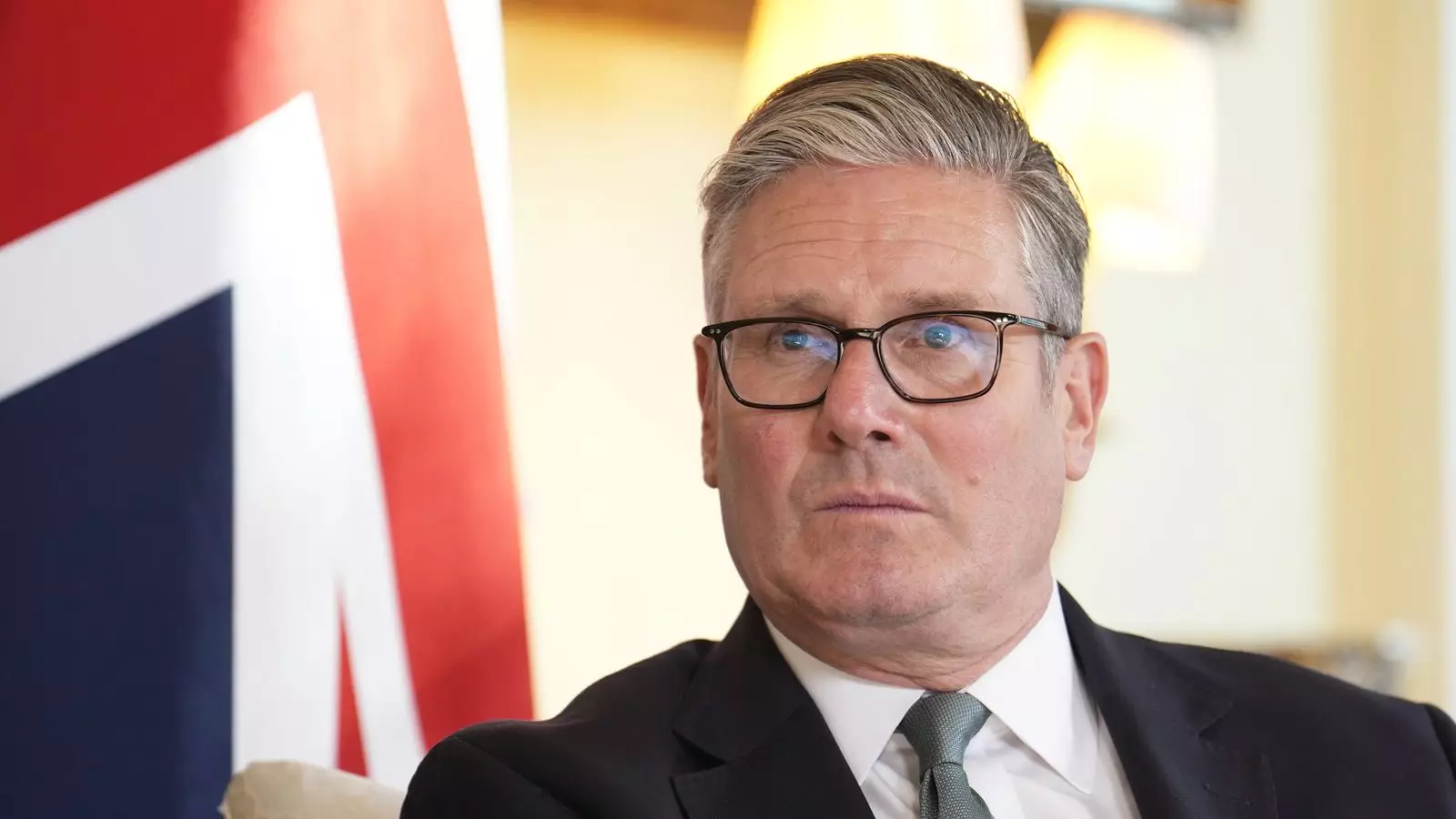In the ever-turbulent landscape of the Middle East, the recent aggressive actions by the United States against Iran’s nuclear infrastructure have cast a long shadow of uncertainty and instability. Sir Keir Starmer, the leader of the UK Labour Party, rightly points out that the situation proves critical for international security, but his approach—focusing solely on the call to action for Iran—fails to consider the root causes of this volatility. Starmer’s assurances that Iran will never be allowed to develop nuclear weapons sound noble, yet they resonate with the blatant hypocrisy often observed in international relations. Why are we surprised when nations seek to defend their sovereignty when faced with external threats? It is time to challenge the assumptions underpinning such military interventions.
The US has claimed its strikes were aimed at neutralizing a significant threat. However, the underlying message from these bombings is not one of peace, but rather a reinforcement of power dynamics akin to the imperialist actions of the past. While the so-called precision strikes might have obliterated key infrastructures, they have done nothing to cultivate the trust necessary for meaningful diplomatic dialogue. Instead of working toward stability, they sow discord—fueling a cycle of retaliation that could have far-reaching consequences for the entire region.
A Ruptured Dialogue: The Urgency of Peaceful Negotiations
Starmer insists on the importance of Iran returning to the negotiating table, but this plea seems disingenuous in light of the recent escalation. The Iranian response, articulated by Foreign Minister Abbas Araghchi, reflects the wider sentiment of a nation feeling cornered and aggressed upon. To suggest that diplomatic measures can flourish amid such animosity is tantamount to ignoring the human cost and geopolitical ramifications of warfare.
While the Western narrative frames Iran as the primary aggressor, it often disregards the historical context of Western interventions and their aftermath. The US actions have not only drawn ire from the Iranian government but have also risked igniting deeper conflicts in a region already teetering on the edge. Starmer’s stance should advocate not just for negotiations but a critical reflection on how we arrived at this juncture—acknowledging the cycles of violence that have eroded trust and raised tensions.
Echoes of Hypocrisy: Global Reaction and Its Implications
The divergence in global responses to the US strikes illustrates the complicated web of alliances and enmities in international politics. Israeli Prime Minister Benjamin Netanyahu praised Trump’s actions, framing them as a historical stand against a ‘dangerous regime.’ This framing entrenches the dichotomy between peacekeepers and aggressors, undermining the realities experienced by millions caught in the crossfire. Ironically, while the US positions itself as a sentinel of democracy, it is actually exacerbating underlying tensions without considering the humanitarian implications of its actions.
On the other hand, UN Secretary-General Antonio Guterres’s expression of alarm about the escalation starkly points to a disconnect between unilateral military action and multilateral diplomacy. The UN, ideally positioned to provide a platform for discussion, faces diminishing authority as individual nations enforce their will through military means rather than through dialogue. This dichotomy undermines the very essence of what the international community ought to strive for: cooperative stability.
Toward a Sustainable Peace: A Collective Responsibility
The responsibility lies not only with Iran or the US but with all nations that aspire to a peaceful coexistence. Starmer’s push for a diplomatic solution, though well-intentioned, must be coupled with an acknowledgment of the complexities involved. Engaging Iran requires more than mere calls for negotiations; it necessitates a re-evaluation of the moral high ground often espoused by those wielding military power.
Moreover, nations should embrace the challenge of creating comprehensive frameworks that prioritize dialogue over dominance. To imagine a Middle East where stability reigns, it is imperative that powers worldwide engage in sincere discussions reflecting the ambitions, histories, and rights of all involved—including states often deemed adversaries.
The future of the Middle East should not be dictated by the prevalence of aggression but by the courageous pursuit of understanding and reconciliation. At this pivotal moment, it is crucial to shift the narrative from one of confrontation to collaboration, ensuring that we do not repeat the mistakes of the past—all for the sake of sustainable peace.

Leave a Reply